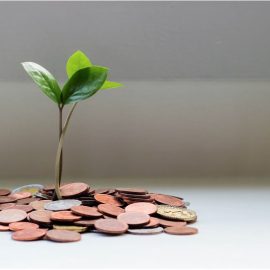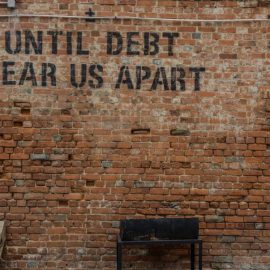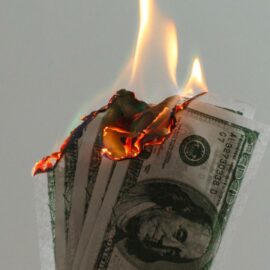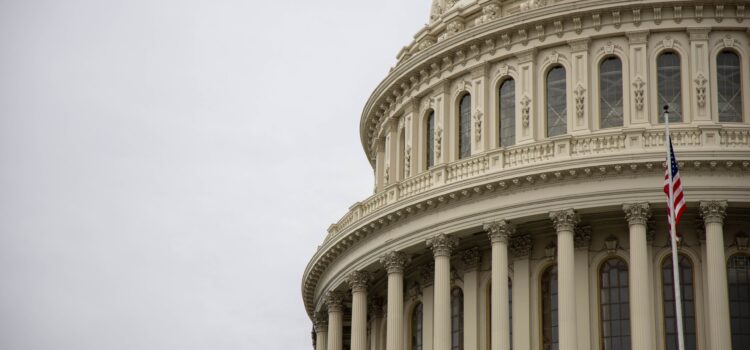
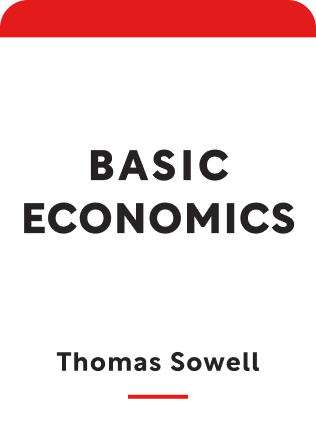
This article is an excerpt from the Shortform book guide to "Basic Economics" by Thomas Sowell. Shortform has the world's best summaries and analyses of books you should be reading.
Like this article? Sign up for a free trial here .
What role does government play in an economy? How would free-market economies function if left to their own devices?
The government provides a number of functions that are highly relevant to the economy’s function. Specifically, governments enforce rules on market transactions to ensure a fair and efficient economy.
In this article, you’ll learn how the government and the economy work in tandem and several ways the government facilitates a functioning market economy.
Law and Order
Economies with an unreliable legal framework, where the application of the law is mercurial, increases investment risk and thus decrease the amount of investing relative to a reliable market economy. The laws don’t necessarily have to be fair – they just need to be reliable to reduce risk.
Economies with an unreliable legal framework are more likely to be corrupt, causing drag on the economy by increasing the cost of doing business and allowing bureaucrats to delay businesses. For instance, it takes fewer than ten days to start a business in Singapore, compared to 155 days in the Congo. Companies and talented people leave the country for a more hospitable place, and foreign companies are loath to hire local workers who may be dishonest.
Social Order
Business transactions among strangers are required for successful mass economies. If people don’t trust each other, transactions don’t happen, and the cost of business increases.
The “radius of trust” is different among different groups and nations. If the radius is limited to the nuclear family, then the size of the company is limited only to the size of the family, since owners don’t hire more workers for fear of theft. This drastically reduces the potential for economies of scale.
In small radius-of-trust societies, insulated groups whose members trust each other have a large competitive advantage, such as Hasidic Jews. The costs of doing business are lower. The social isolation makes it very costly for anyone in that community to lose her standing by cheating on agreements.
Government can promote honesty through laws, education, and examples set by public officials.
If laws are poorly enforced or bad laws are created, it can be far more profitable to violate laws than to abide by them. Inevitably resources will flow to those who can profit most from them, lawbreaking will occur, and social order takes a penalty. For example, in rent control areas, unscrupulous landlords can turn an otherwise unprofitable building into a profitable one by accepting bribes from tenants unable to find housing, or by burning it down to make room for a commercial building.
Property Rights
Chief among economically useful laws is property rights. Allowing individuals to have private property and keep what they earn creates powerful incentives for productive behavior. Property rights create self-monitoring, which is more effective and less costly than third-party monitoring.
In contrast, the Soviet Union lacked property rights and the ability to freely make use of profits. Thus, neither profits nor losses connected back directly to the individual, thus removing the incentive to work efficiently.
Another contrast to the value of property rights is when resources lack a dedicated owner – for example, air and water are commonly polluted, since there is little incentive to safeguard something you don’t own. “The only animals threatened with extinction are animals not owned by anybody.”
Even though they’re decried as tools of the rich, many property rights are actually more valuable to the not-rich, for collectively they often have greater purchasing power. In an open market, the poor could theoretically purchase mansions, converting them into apartments to make better use of a scarce resource. To combat this, wealthy people have passed laws to restrict property rights, such as requiring land to be sold in lots of one acre or more (thus pricing homes beyond the reach of most people) or zoning building areas and forbidding the building of certain types of housing.
Externalities
Marketplace transactions typically reflect the real costs and benefits that result. However, in some cases the transaction has effects beyond the transacting parties. An electricity company may transact with a coal producer to burn coal, but this produces smoke that damages people’s health and covers the area with soot. These people do not take place in transactions between the coal producer and the utility company, but they are affected by the transaction regardless.
Similarly, transactions may be beneficial to other people but not to you, and mandating these transactions may allow everyone to be better off. For example, having mud flaps on your truck doesn’t change your life, but they do help others. And requiring other people to have mud flaps improves your life considerably.
These are called external costs or “externalities,” and government can intervene to force transactions to account for externalities, through taxes or regulation.
Some benefits are indivisible – having the benefit helps everyone, regardless of whether they want it or not. Military defense works this way, where the same military protects the entire populace. If participation in military funding were voluntary, individuals might feel their stake in the payment is so low that they could “free-ride” off others – and if enough people think this, there would simply be inadequate funding for the military. Thus the government funds military spending through mandatory taxes, so everyone contributes a share.
Outside of government, organizations can choose to enact collective action. Trade associations can share information and standardize products, benefiting themselves.

———End of Preview———
Like what you just read? Read the rest of the world's best book summary and analysis of Thomas Sowell's "Basic Economics" at Shortform .
Here's what you'll find in our full Basic Economics summary :
- Why we use money, rather than bartering our services with each other
- Why some nations prosper, while others stay poor despite vast natural resources
- How rent control might actually reduce housing supply and quality

